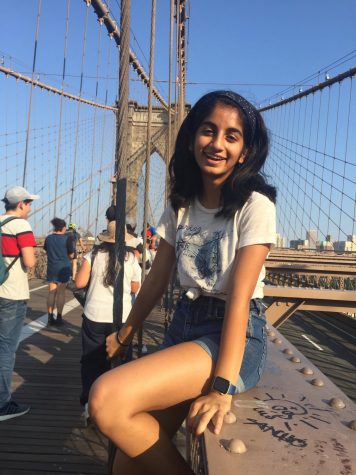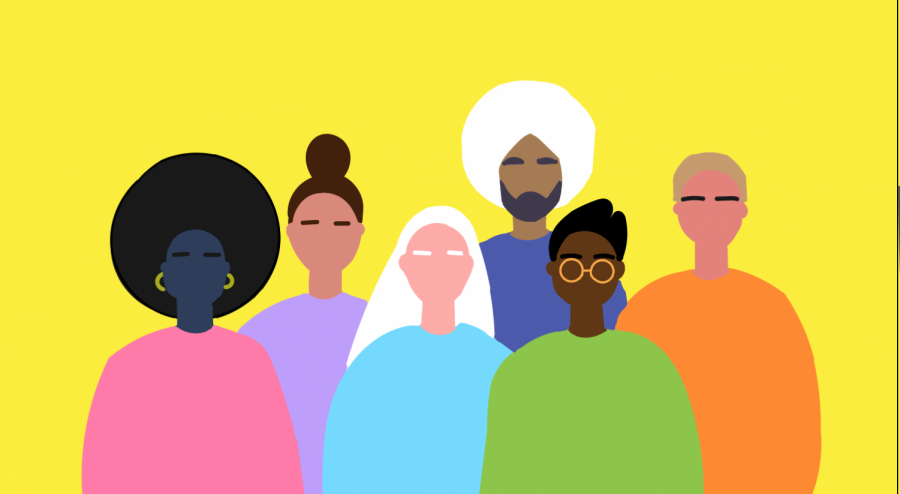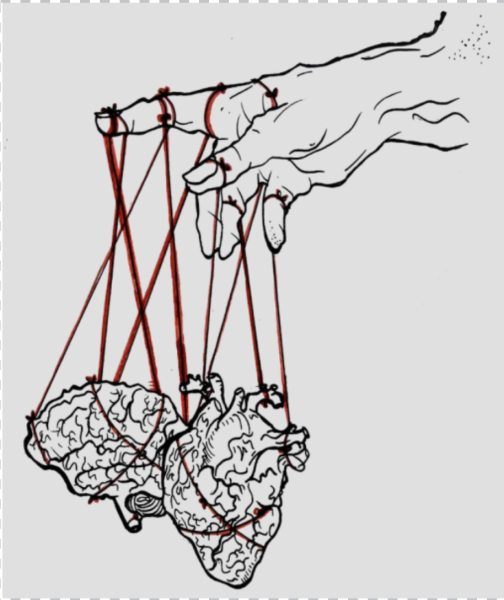Beyond Borders
It is a Thursday afternoon, the first sunny day we have had in months. I enter Ms. Tanji’s classroom to talk to her about her new role as diversity coordinator (which she just received this year).
After a rather tumultuous year following an ongoing pandemic and a worldwide, as well as in-school, reckoning with racism and inequality, the school recently announced a much-needed diversity coordinator role within the staff. Curious, I wanted to learn more about what the role encompassed, and thus decided to meet with her. In the process, I began to reflect on the true meaning of diversity, and what it would look like at ISL.
When asked about what motivated her to apply for this role, Ms. Tanji mentioned how her upbringing and experiences inspired her to enter education and help students navigate difficult questions surrounding their identity. “I wanted to give my students the ability to explore their differences as something positive and not something negative”, she explained.
While we were speaking, it struck me that this was a new role; therefore, by definition, it did not exist before. This is indicative of the shift in mentality that is occurring worldwide and including within our school. It is not that problems surrounding perceptions of identities and cultures did not exist before, but rather that they were treated as secondary concerns. However, the introduction of such a role indicates the school’s recognition of these problems and their willingness to foster a more inclusive atmosphere. This is a sentiment that Ms. Tanji seemed to agree with, adding that “by recognizing a problem we are able to begin fighting it.”
Within the past year, there have been several incidents that have prompted all of us to reflect and question how we interact with one another. After witnessing the horrifying deaths of George Floyd, Breonna Taylor, and countless more, it is natural to react emotionally and demand change. In fact, that is often the first step towards change.
It is important to move beyond that passive space and translate that passion into action for lasting change. For you can only put out so many fires; eventually, you need to reform building codes and educate home dwellers to avoid the fire entirely. Excuse the rather extended analogy, but my point is that for us to become a more inclusive school, we cannot expect that simply reacting or talking about the ‘secondary issues’ is enough to meet our goal to be an inclusive society.
As a school, our name can be ironic at times – while we may have a diverse school in the traditional sense of the word, it can feel like that the only time our differences are celebrated is on International Day. On a daily basis, however, we recline into an ‘ISL culture’. This is not necessarily a bad thing, except when it encourages us to remain within our segregated silos and prevents an individual from living fully within their identity. There have been several such incidents within our school, highlighting the need for reform.
Being diverse does not mean looking beyond borders and trying to assimilate instead of integrate. Instead, it means existing within a community whilst bringing your own ideas and experiences to the table.
Ms. Tanji explained, “It is important to put it [diversity] in a light that brings us together and allows us to build our own identity through a school culture, which does not shadow anyone’s identity.” Unfortunately, creating such a culture does not come with a ten-step-plan for us to follow. Instead, Ms. Tanji thinks that we are going to have to rely on having conversations, even those that may be uncomfortable, in order for us to introspect and begin to deconstruct and evaluate the ideas that we are born with.
Introspection requires you to look within and reflect on who you are and what you do. For our school, that means that our entire community – parents, teachers, students, and staff – will have to partake in this process, for we are all influenced by one another. Change demands it.
Reflecting on our conversation, Ms. Tanji said one thing that resonated with me, “the most important thing that we can do is create a safe environment where you can be who you are and express it how you want to.” Express your identity the way you want to, and not fear being rejected by your peers. This seems to be the most basic form of human empathy and acceptance. Unfortunately, it is not the current reality for many students within our community who struggle to express their sexuality or gender, or live comfortably within the skin they are born in. However, I remain hopeful that with persistence and patience, we can become the best version of ourselves and truly live up to our name – International School of Lausanne.

Hi! I have been writing for The High for my entire high school career, and I am currently the Editor-In-Chief of the paper for the year 2020-2021. Most...



